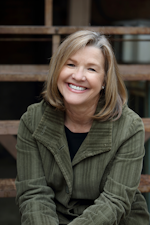Breaking the cycle of dental trauma among Canadian Natives
Each week the RDH PIRA (Patient Impact & Rise Above) recognition program, sponsored by Water Pik, Inc., features a dental hygiene clinician who excels in their role and goes the extra mile in their job. The past two-plus years have been a challenge for many clinicians and as we return to the operatory, we want to acknowledge those providing patient care—clinicians who are changing their patients’ lives, influencing their patients’ health, and making a daily difference. This week we honor Natasha Kellett, RDH.
From Natasha’s submission
“I work at First Nations Community Clinic on Haida Gwaii, a remote and isolated archipelago off the North Coast of British Columbia, Canada. This is the traditional home of the Haida. It’s here that I became aware of the history of trauma First Nations people have endured and the role dental professions have played.
Read about more PIRA honorees
Making memories—and an impact
Inspiring future dental pros through kindness
The people of Haida Gwaii endured much dental trauma, including intergenerational dental trauma. This is the legacy of residential schools, Indian day schools, military dentists, government-funded dentists, and recently, a failed relationship with a dental school. It is unfathomable the amount of dental trauma and the impact colonialism has on oral health.
My goal is to deliver dental care that does not contribute to this legacy and instead assists and empowers clients and their families on their healing journeys. I started a project that integrates traditional healers into the dental clinic to assist in managing trauma-based dental fear. I developed a cultural awareness and sensitivity training program for new dental service providers that has led to improved oral health in the community and greater acceptance of dental service providers and the dental profession.
Promoting and providing dental care in a safe and respectful way that improves access to dental care and patient outcomes is one of my greatest achievements. By partnering with dentists outside the community to assist in managing dental emergencies during a three-month pandemic lockdown, I brought awareness to the challenges people living in rural and remote areas of Canada face when trying to access dental care.”
More about this week’s PIRA honoree
Natasha's passion for dentistry spans three decades. She grew up in a small community on Canada’s West Coast and felt the need for access to respectful, equitable dental care in remote and rural areas. Her interest in access to care led her to become a certified dental assistant and then a dental hygienist. Natasha’s career includes private practice, public health, community clinics, and dental charities.
She moved to Haida Gwaii, a remote archipelago, to work at a First Nations Community Clinic. Here she became aware of the long history of trauma caused by the dental profession to First Nations people. Natasha believes dental services can be delivered in a culturally safe way that embrace local traditional values, that do not contribute to the legacy of trauma but instead assist and empower clients, families, and communities on their healing journey. She is particularly passionate about advocating for respectful and equitable access to dental hygiene services in BC’s remote and rural areas. Currently she is a member of the BCDHA Interprofessional Collaboration Policy Table, and in 2021 she was the recipient of the Barbara Heisterman Award from the BCHDA and the Dental Hygiene Superhero Award from the CDHA.







